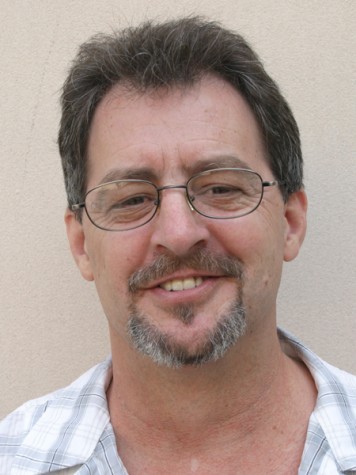The current economic downturn, along with increasing concern about the consequences of progressive global warming, has brought issues of sustainability to public attention and now to the campus.
Hazel Ramos, a history professor, has been appointed to the part-time position of sustainability coordinator at GCC. The sustainability coordinator is a funded position supported by the Academic Senate Partnership for Excellence funds.
The principle of sustainability refers to using the earth’s resources at a rate in which they can be replenished.
At GCC such efforts are now being supported as part of a campaign to optimize sustainability on the campus.
“Our goal is to make Glendale college a greener campus,” said Ramos, “to promote sustainable practices here at work, to encourage people to follow the green path by using alternative transportation, turning off the lights when they are not being used, turning off the computers, not littering. anything that has to do with green practices. And we would want in pursuing sustainable practice to save money as well. so that would mean for the college lowering our energy costs.”
The sustainability project began as a task force of the GCC Academic Senate in May of 2007 to examine the subject of environmentalism across the curriculum.
According to findings developed by this task force and presented to the Academic Senate in April 2008 “The task force began with the concept of fostering environmentalism awareness across the campus.”
Further consideration to goals in specific categories including educational, financial, institutional and ethical was then given:
With regard to educational goals, it was stated by the task force that “students will learn more about the environment. economics, philosophy, history, art, literature, mathematics, geography, medicine and religion are just some of the disciplines that interact when performing environmental analysis.”
In the financial area, it was noted that “the college spends approximately $1.5 million a year on energy costs.” Although anticipated energy cost savings were not specified, it was hoped that this would repay the cost of running the sustainability program.
The project fits within the institutional goal of achieving GCC’s fifth core competency in which “learners recognize and analyze the interconnectedness of global, national, and local concerns, analyzing cultural, political social and environmental issues from multiple perspectives; they recognize the interdependence of the global environment and humanity.”
(Core competencies are institutional student learning objectives required for accreditation and established by the academic senate in seven areas including communication, mathematics, information, critical thinking, global awareness, personal responsibility and application of knowledge).
Finally, under the category of ethical benefit the task force stated “We believe that the health of the earth’s ecosystems, the pollution of the local environments, and the prudent use of the earth’s resources are among the most pressing concerns of society today.”
To support these objectives, the position of sustainability coordinator was established with a job description “to increase college awareness of environmental issues both in and out of the classroom; to facilitate?environmental education?at the college and to help the institution make greener choices; to promote a systematic approach to sustainable operations in the college facilities practices.”
According to Ramos, “We have a moral responsibility to minimize our carbon footprint. to think about our future. with a finite amount of resources what’s left for the future?”
“We have a green team, which meets once a month and serves as an advisory body to the college sustainability effort,” said Ramos.
Ramos said that students can become part of the effort by using reusable bags, buying products made from recyclable materials, as well as investing in green water canteens, which reduce the number of plastic water bottles that end up in landfills.
Ramos also suggested that students look for alternative methods of transportation, including riding a bicycle, taking a bus or walking.
Green team committee members (students, faculty, staff and administrators) include Frankie Strong, governance office coordinator.
“I strongly believe in educating, said Strong, “The more informed that people are about how to be more energy conscious [the better]. It’s such an easy thing that all of us can do individually but oftentimes people take it for granted – that maybe someone else is doing it so they don’t have to worry about it.it’s important that we educate and inform everyone on campus about little ways that they can help.turning off the lights, picking up the trash.carpooling.”
Strong actively practices recycling principles both at home and in her office where she makes use of natural light, saves envelopes for multiple reuse, keeps a pile of scratch paper and has a water cooler instead of using individual water bottles.
With regard to future initiatives, Ramos noted plans to build an in-house recycling program in conjunction with Dan Padilla, manager of maintenance and operations. This could result in significant savings over the recycling of campus waste now done by a commercial service.
Ramos said, “We want to be a green campus and save money at the same time .and promote sustainable practice.”
On Thursday, booths will be placed in the quad to showcase various aspects of the sustainability program.
On May 14, Bike to Work Day will be celebrated with the GCC Bike to Work Team working with the Los Angeles Bicycle Coalition and PLACE (Policies for Livable Active Communities and Policies) to promote alternative transportation.
Further information can be found at the GCC website: www.glendale.edu/sustainability

